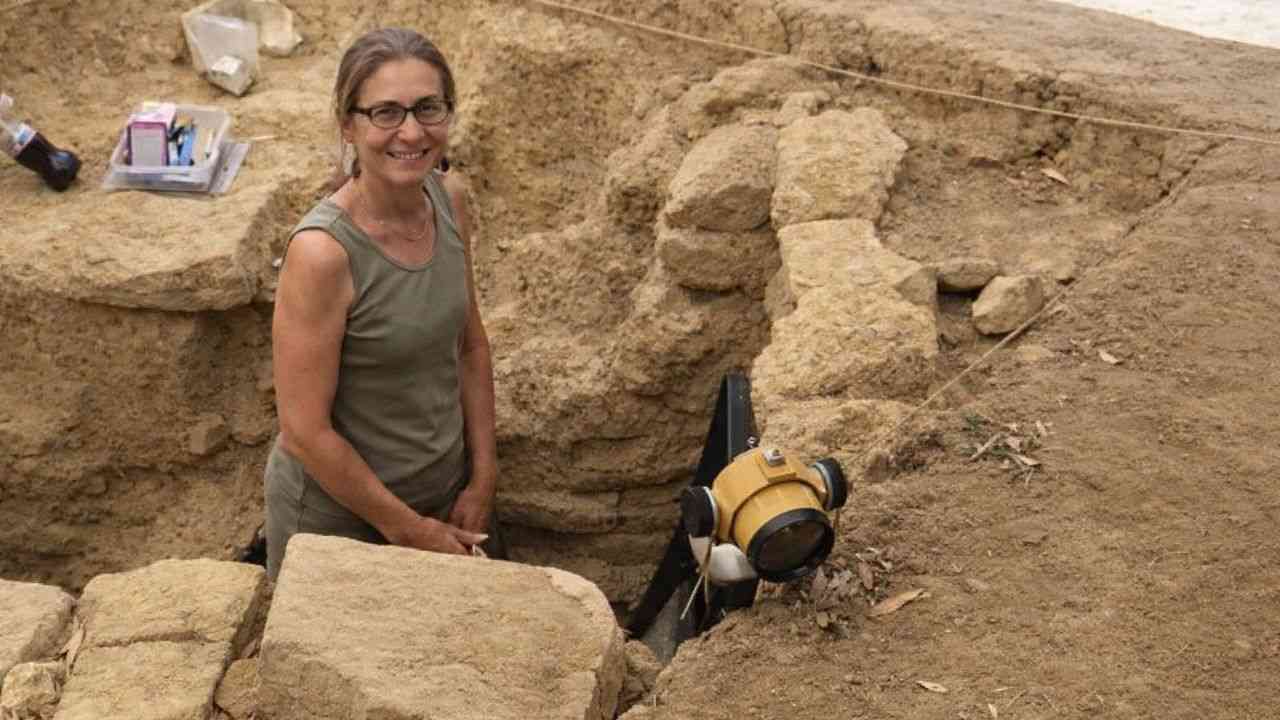Science
The Sun’s Ring of Fire and a Planetary Parade: A Captivating Celestial Show
13 February 2026

At the dawn of the 21st century, the need for lifelong learning and the perpetual acquisition of new skills has become increasingly paramount. Adult education is no longer a luxury but a necessity to navigate the complexities of today’s rapidly evolving world.
With people living longer lives and witnessing profound scientific and technological shifts, the modern individual experiences multiple historical epochs in a lifetime. This is a stark contrast to the past when a person’s lifespan typically encompassed a single era. Those who began their education in the age of black-and-white television are now concluding their careers in an era dominated by computers and smartphones.
To remain relevant and effective in society, continuous education is essential. The more adeptly individuals engage in ongoing learning, the greater the benefits – not just for themselves, but for their communities as well.
The terminology surrounding adult education is subject to debate, with terms like lifelong education, continuous education, whole-life education, and ongoing education being used interchangeably. All these terms refer to the continuous acquisition of knowledge, refining qualifications and skills, both professional and general – in other words, learning throughout one’s entire life, without interruption, into old age. This serves, among other things, the holistic development of a person, shaping their mind, spirituality, responsibility, and aesthetic sensitivity.
Renowned Polish educator Prof. Zygmunt Wiatrowski defined lifelong education as “the entirety of educational and upbringing processes occurring throughout a person’s life, conducted in all possible organizational-programmatic forms and in all situations of human interaction.”
The origins of continuous education date back to antiquity – in Greece, it was synonymous with elite education, a tradition reserved for the upper echelons of society. This approach to lifelong learning evolved during the European Renaissance, with universities promoting extended periods of study. The Enlightenment era marked a significant shift. It introduced the notion of universal, secular education. This period also saw the emergence of what was termed “folk education,” a precursor to the mid-20th-century concept of adult education (vocational schools).
We recommend: Reflective Learning: The Power of Metacognition in Education
In Poland, there is a long tradition of lifelong learning. The first mention of it can be found in the treatise by the Kraków professor Szymon Marycjusz in 1551, in which he wrote that “learning should last a lifetime” and that “it is better to learn late than never.” He stated:
“At no age should you be ashamed of what you do not know, because the love of learning and engaging in it is not limited to school times but ends with life.”
The issue of adult education resurfaced during the times of the Commission of National Education in the late 18th century. Grzegorz Piramowicz, a Jesuit writer from Lviv, asserted in his Duties of a Teacher:
“It is not the task of a school to teach the student everything, to pass on complete systems of science; the school should be an antechamber leading to the world of knowledge, a path indicating the way and possibilities of knowledge in which one will choose to excel in the future.”
This enlightened intellectual current, laying the groundwork for 20th-century theories, was continued during the partitions in Poland by educational activists in Greater Poland. Poznań philosopher Karol Libelt advocated for the necessity of educating youth and adults in Sunday schools, and economist August Cieszkowski championed out-of-school adult education. In the Second Polish Republic, the Institute of Adult Education was actively functioning. The issue of lifelong learning re-emerged in the 1960s, mainly under the influence of trends in the West – for instance, UNESCO played a significant role. In a report prepared for this organization, it was recognized that lifelong education is both a goal and a means of development, as human nature determines the need for constant upbringing.

The development of continuous education was notably influenced by the 1996 report Learning: The Treasure Within, authored by Jacques Delors, a prominent French politician, economist, and long-time President of the European Commission. It recognized that continuous education is a response to the needs of a modern society transforming at an unimaginably fast pace. It also emphasized that the opportunity for lifelong learning is a value that allows individuals to utilize their potential and actively, and sustainably participate in social life.
Since the beginning of the 21st century, there has been widespread agreement among scholars that the most significant justification for the need for lifelong learning is the civilizational transformations observed in the contemporary world. These changes encompass technology, science, culture, and society. If individuals wish to keep pace with the rapidly changing reality, they must continually educate themselves. This is crucial for the overall pace of socio-economic development.
The rapid rate of change requires a good understanding of the new reality and efficient use of increasingly advanced tools, including information and electronic technologies. On the one hand, knowledge helps us understand life, culture, and the needs of fellow citizens and other nations. On the other hand, new devices allow for contact without geographical or language barriers, though they also contribute to increasing isolation.
Changes are also evident in political geography. Looking at the map of Europe, generations that completed their education before 1990 saw different countries than we see today. For example, all of Poland’s neighbors have changed – new states have emerged or old ones have been renamed. We are witnessing numerous discoveries in biology, chemistry, physics, and other scientific disciplines. These gaps in education can be filled through lifelong learning.
We recommend: Transforming Education Through Collaborative and Cooperative Learning
Educators emphasize that individuals, regardless of age, should care for self-improvement and development, as only through continuous learning can they avoid stagnation, exclusion, and marginalization. Social exclusion of older people is becoming a more serious problem: the lack or limitation of opportunities to participate, influence, and benefit from fundamental public institutions and markets that should be accessible to all.
In other words, it is a situation that prevents or hinders an individual or group from performing social roles, accessing public goods, accumulating resources, and earning income in a dignified manner. This can profoundly affect the dignity of older people, who are subjected to a form of discrimination. For example, seniors who are unable to use the Internet do not have access to many services, including financial ones. The inability to use online banking typically results in higher fees and reduced profits. Due to the inability to verify commercial information online, older people often overpay for goods or services and are more vulnerable to fraudsters. Lack of familiarity with modern tools, therefore, pushes seniors to the margins.
The most effective remedy for preventing social exclusion is continuous education, encompassing all social groups. “No age constitutes a cognitive barrier to inducing developmental changes in acquiring and optimally utilizing opportunities for participation in social life,” underlines educator Prof. Maria Kuchcińska. She emphasizes that contemporary development is closely linked with education. It should encompass various areas and not be limited during old age when a person ends their professional activity. This time should not be associated with stagnation and withdrawal from social life.
Educational activity in retirement should be the culmination of a lifelong process of formal, non-formal, and informal education. Only through education can seniors remain active members of society despite retiring from their professional careers. Education in older age is one of the more significant factors determining the quality of life for the oldest generation. It can even serve to discover the meaning of life, understand ongoing changes, and experience life satisfaction. It also becomes an opportunity for self-development, improvement, and making new acquaintances.
Lifelong education should also be seen as an effective way of managing human capital. It can, at least partially, fill gaps in the labor market. According to a forecast by the auditing firm PwC, as many as 1.5 million job positions await applicants by 2025. The reason is obvious: staffing shortages. Meanwhile, the Ministry of Internal Affairs and Administration in Poland predicts that by 2030, Poland will lack four million workers. At least a portion of these positions could be filled by appropriately retrained individuals and willing seniors.
Data from the Social Insurance Institution (ZUS) indicates that Polish retirees are increasingly willing to work. In 2022, 132,000 individuals benefited from the relief for employed seniors. This is in addition to 754,000 professionally active individuals receiving pensions. Approximately every eighth senior officially works or earns extra money, contributing to the GDP. This number could be higher, but the lack of people with competencies adequate to the labor market needs stands in the way.
In Poland, only 20% of the professionally active population can count on further development in their chosen profession, while the rest require appropriate retraining. For comparison, in Western European countries, working individuals usually have several professional specializations, acquired through lifelong learning.
We recommend: Redefining Education: Beyond the Classroom
People with higher and more diverse education can offer more to potential employers and find jobs much more easily. Hence, in many professions, acquiring new skills and enhancing qualifications is a daily routine.
The conclusions are clear: both citizens and the state stand to benefit when adults, including seniors, enhance their knowledge and professional skills. Such continuous education and keeping up with scientific and technological progress genuinely support prosperity. Competencies in the most specialized fields, such as IT, foreign languages, etc., are preferred. It seems justified to conclude that lifelong education is the best way to meet the challenges caused by changes. The statement by Indian philosopher and leader Mahatma Gandhi, “Live as if you were to die tomorrow; learn as if you were to live forever,” seems particularly relevant today.
Translation: Klaudia Tarasiewicz
Science
13 February 2026

Science
13 February 2026

Science
12 February 2026

Zmień tryb na ciemny